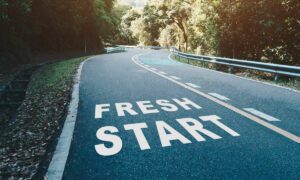The term ‘Reiki’ has become increasingly prominent in public consciousness in recent years, yet its origins, implications, and profound benefits remain somewhat elusive to many. As a holistic approach to wellbeing, Reiki encompasses emotional, physical, and spiritual dimensions. In the hands of a dedicated and competent Reiki trainer, this ancient healing approach can be instrumental in promoting holistic wellbeing and driving positive transformation. This effort not only explores the rich history and fundamental principles of Reiki but also delves into the role and commitment of a Reiki trainer, the process of achieving Reiki certification, and the practicalities of setting up a successful Reiki practice.
Understanding Reiki
Origins of Reiki
Reiki, pronounced ray-key, originates from two Japanese words: “rei,” which means “universal” and “ki,” which refers to the “life energy.” This spiritual, energy healing technique was developed in the early 20th century by Buddhist monk Mikao Usui, in Japan. Usui’s teachings, known as the Usui System, are the foundation for what we call Reiki today. Reiki spread to the west through Hawaii in the mid-20th century and has since grown in popularity worldwide.
Reiki Principles
Central to the practice of Reiki are the Five Reiki Principles, also known as the Five Pillars of Reiki. They are guidelines that serve as a kind of moral compass for living a fulfilling life. The principles are: Just for Today, I will not be angry; Just for Today, I will not worry; Just for Today, I will be grateful; Just for Today, I will do my work honestly; and Just for Today, I will be kind to every living thing.
Benefits of Reiki
Reiki aims to balance the energy within and around the human body, and this balance can promote a sense of well-being, peace, and tranquility. Practitioners claim that it can help with a wide range of physical, emotional, and spiritual issues. These include stress reduction, relaxation, anxiety management, pain relief, and overall wellness. Notably, the National Institutes of Health (NIH) have documented research showing that Reiki is beneficial in managing pain and anxiety in cancer patients.
Reiki and Holistic Wellbeing
Reiki is considered a holistic practice as it addresses the body, mind, and spirit. By promoting energy balance, it seeks to optimize the body’s natural healing abilities. Regular sessions can promote long-term wellbeing, enhance self-awareness, and foster a sense of inner peace and tranquility. It’s an integral part of what we call complementary and alternative medicine, often used in conjunction with traditional medical treatments to provide holistic care.

Introduction to Becoming a Reiki Trainer
Embarking on the journey to become a Reiki Trainer involves advancement through several stages of development. The initial stage, known as Reiki I, is centered around how to self-channel Reiki energy. Following this, the second level or Reiki II, introduces distant healing mechanisms, which involves directing energy to an individual who isn’t physically proximate. Achieving the title of Reiki Master or Trainer means reaching the third portal – Reiki III. This final level equips you with the requisite knowledge and abilities to mentor others in Reiki. Many people decide to become Reiki trainers for the purpose of self-enhancement or to offer healing services, whether professionally or to their loved ones.
The Role of a Reiki Trainer
The Duties of a Reiki Trainer
Reiki Trainers, also known as Masters or Teachers, form the keystone of the Reiki knowledge dissemination and practice. They shoulder the responsibility of guiding budding students on the invigorating path of Reiki, a much valued Japanese relaxation and healing technique. The fundamental duties of a Reiki Trainer encompass the teaching of Reiki principles, channeling the students into the current of Reiki energy, aiding them in harnessing their healing strength, and providing a nurturing, positive, and motivating environment for learning.
Technical Aspects of a Reiki Trainer
On a technical scale, a Reiki Trainer must have accrued significant experience in practicing Reiki, typically reaching the level of Reiki Master before undertaking training others. The trainer should master the three levels of reiki, be familiar with the symbols used in the practice, and execute them correctly. Reiki Trainers should perform attunements, the process by which they open a student’s energy pathway to the universal life force energy.
In the context of teaching, they should be skilled in creating lesson plans, performing practical demonstrations, and providing feedback to students’ technique. They must continuously update their knowledge and skills to keep up with any advancements or variations in the practice of Reiki.
Emotional and Intellectual Capabilities
The role of a Reiki Trainer goes beyond the technicalities of the practice. Emotional intelligence is key in creating a supportive and nurturing environment for students. A Reiki Trainer must demonstrate empathy, patience, and understanding, as each student has a unique journey filled with diverse emotional experiences.
Intellectually, a Reiki Trainer needs to comprehend and articulate the subtleties of reiki practice, explain concepts clearly, answer questions promptly, and provide suitable advice to help students overcome their challenges. A keen understanding of human psychology and the ability to connect with diverse personalities also comes in handy.
Commitment and Dedication
The life of a Reiki Trainer demands a great deal of commitment and dedication. They are not only committed to their own practice of Reiki, but also to the success of their students. This role requires time, energy, and resources for continued education and professional development to ensure the quality of their teaching.
The commitment also extends to promoting the practice of Reiki, adhering to the ethical guidelines of the profession, and upholding the integrity of the role. They should be available to provide follow-up support for students even after the training is over.
Introduction
Embarking on the journey to become a Reiki Trainer is a path filled with commitment and devotion. This role requires not only a high level of technical skill and deep intellectual understanding but also emotional intelligence and a lifelong dedication to the art and practice of Reiki.

Reiki Training and Certification
Digging Deeper into Reiki and Its Stages
Reiki is a unique type of Japanese therapy that fosters holistic wellness through energy transfer. The journey to becoming a Reiki trainer requires ascending through various stages or degrees of learning. Each level imparts you with the knowledge and expertise to understand, practice, and eventually teach the principles of Reiki properly.
Reiki I – The Initial Level
The initial level, often referred to as Reiki I, teaches the history, nature, and fundamentals of Reiki, and how to perform self-healing. It emphasizes the hand positions used to channel healing energy and balance the body’s energy centers, or chakras.
Reiki II – Advanced Techniques
The second level, Reiki II, delves into distance healing techniques, enabling practitioners to deliver Reiki across spatial constraints. More intricate symbols are introduced, and their usage in physical, mental, and emotional healing is expounded.
Reiki III – Master Level
Reiki III or the Master level signifies a significant leap in knowledge and expertise. It involves learning advanced Reiki symbols, introduction to spiritual (or psychic) surgery, and the utilization of crystals in healing. At this stage, you hold the understanding to enact healing at spiritual, karmic, or past life levels.
Reiki Master Teacher Level
Completing these training levels does not automatically confer master status or the ability to train others. To become a trainer or a Reiki Master Teacher, additional training and attunements are necessary. This stage is typically referred to as the Reiki Master Teacher Level, where a more profound comprehension of Reiki, its principles, and the ability to teach and attune others, is instilled.
Reiki Training and Certification Process
The certification process in Reiki varies based on the lineage, the trainer, and the specific Reiki tradition. However, certain components are standard, such as theory courses (history, principles, symbols), practice sessions (self-healing, healing others, distance healing), and attunements (energy initiations). To become certified, students typically need to demonstrate comprehension of Reiki, its principles and symbols, and show aptitude in using Reiki for self and others’ healing. Attending a certain number of classes, practicing a specified amount of hours, and passing examinations might be requirements for certification.
Accreditation and Lineage in Reiki Training
Reiki accreditation is an assurance of quality training, learning, and practice. Accreditation institutions, such as The International Center for Reiki Training (ICRT), The Reiki Association, or The Reiki Council, uphold standards of practice and training. They provide guidance, continuing education, and create a community for Reiki practitioners.
Reiki Lineage and Choosing a Trainer
Reiki lineage traces the line of Reiki Masters back to the founder, Dr. Mikao Usui. It serves as a testament to the continuity of knowledge transmission from Master to student. When choosing a Reiki trainer, it is essential to note their lineage as well as their educational and practice background. Authenticity, competence, ethics, and integrity are crucial qualities to look for in a prospective Reiki trainer.
The Necessity of Ongoing Learning and Mastery
Getting your Reiki certification is just the commencement of your lifelong journey of learning. It’s crucial to make continuous learning, rehearsing, and self-caring efforts part of your daily routine. This maintains your vibrational frequency and healing potential. Engaging in Reiki share sessions, classes, seminars, and jumping on every opportunity to improve your knowledge and abilities will not only contribute to your personal development but will also equip you better to help others on their own healing paths.
Skills to Develop for Being a Successful Reiki Trainer
Necessary People Skills for a Prosperous Reiki Trainer
Being able to connect effectively with others is a fundamental ingredient to achieving success as a Reiki trainer. Empathy, which is comprehending and resonating with others’ emotions, plays a significant role. As a Reiki guide, you will come across individuals from various backgrounds, each carrying their own exclusive needs and perceptions. Having the ability to latch onto these sentiments can steer you in delivering suitable Reiki methods and advice.
In addition, the virtue of patience is another attribute to be cultivated by a Reiki trainer. Conducting Reiki sessions and mentoring students often require time and sensitivity. People don’t all learn and heal at the same speed; therefore, showing patience can generate solace and relaxation during these periods.
Intuition and Self-Practice for a Reiki Trainer
Coupled with empathy and patience, a Reiki trainer should also focus on refining their intuitive abilities. Intuition is a form of understanding or knowing without the use of rational processes. This is often crucial in Reiki sessions where one can intuitively sense the energy flow or blockages in a person’s body and use this awareness to direct the healing process.
Consistent self-practice, another skill worth emphasizing, is central to developing all the aforementioned qualities. By frequently practicing Reiki on oneself, a trainer not only maintains their own wellbeing but also deepens their understanding of Reiki points, techniques, and the experience on the receiving end. This self-practice, in turn, enriches their teaching capabilities and effectiveness as a healer.
Technical Knowledge for Reiki Training
In addition to the interpersonal skills and intuition, having thorough technical knowledge is indispensable to becoming a successful Reiki trainer. This includes understanding the history and philosophy of Reiki, the layout of meridians and chakras within the body, and the specific hand positions and symbols used in Reiki. It also requires knowledge of the various levels in Reiki training, including the differences between them and the necessary steps for a student to advance through them.
Moreover, understanding the mechanisms of how Reiki works on a physical, emotional, and spiritual level equips a trainer with the ability to explain the process to clients and students. Hence, a comprehensive understanding and the ability to articulate this knowledge is an inevitable part of proficient Reiki training.
To develop a successful career as a Reiki trainer, you will require a combination of both personal skills, such as empathy and patience, as well as professional knowledge in the techniques of Reiki. Integrating these with keen intuition and continual self-practice will equip you to become a truly effective Reiki trainer in this field, opening the path to a rewarding and prosperous career.
Setting up a Reiki Practice
An Overview of Reiki and Its Rising Demand
Originating from Japan, Reiki is a healing method that aims to reduce stress, enhance relaxation, and promote overall wellbeing. It involves a method termed as ‘palm healing’, where the practitioner directs a form of universal energy into the patient’s body. Acting as a conduit for this energy, the Reiki practitioner places their hands directly on or over the body in specific positions. In recent times, the demand for Reiki healing has seen a significant surge. This trend has been driven by people everywhere becoming increasingly interested in exploring alternative routes to rebalancing their health and optimizing their overall wellness.
Establishing Your Reiki Practice
Starting a Reiki practice requires thorough preparation and planning. First, ensure that you have received the necessary training, have in-depth knowledge of the technique, and are comfortable with the practice. You must also have obtained a Certificate of Practice, qualifying you as a professional Reiki practitioner. This can be accomplished by completing an accredited course.
Legal Aspects of Setting Up a Reiki Practice
Once you are ready with your qualifications, the next step is understanding the legal aspects of setting up a Reiki practice. It is essential to get the necessary permits and licenses that adhere to your local state or even national regulations. These can include a business license, professional liability insurance, and any other relevant certifications required by local health departments. Always remember to stay updated with industry standards and codes of practice.
Marketing Your Reiki Practice
Marketing strategies are important to help spread the awareness of your services. Your website and other online platforms can be a significant tool in marketing. Utilize SEO strategies, create engaging content, and manage listings for your therapy practice on local directories. Aside from online marketing, word-of-mouth referrals, partnerships with other health professionals, and participation in community events can also contribute to the growth of your practice.
Logistical Aspects of Operating a Reiki Practice
Setting up your practice involves finding a suitable location that provides a calm, relaxing, and accessible environment for your clients. You also need to establish a system to manage appointments, billing, record-keeping, and other administrative tasks. It might be helpful to invest in practice management software specially designed for health practitioners.
Professionalism and Ethical Practices
A successful Reiki practice is built on professionalism and ethical conduct. As a Reiki trainer, maintaining professionalism means respecting patient confidentiality, providing transparent and accurate information about your services, and adhering to professional boundaries. Ethical practices include obtaining informed consent, providing a safe and comfortable environment, and treating clients with respect and dignity.
In a nutshell, setting up a Reiki practice demands careful planning, adherence to regulations, and ongoing commitment to professional and ethical conduct. Despite the challenges, being a Reiki practitioner offers a rewarding opportunity to contribute to the health and wellness of others.

Embarking on the journey to become a Reiki trainer is a path that demands more than simply mastering the technical aspects. It requires empathy, a deep commitment to personal growth, and a persistent desire to assist others in their healing processes. Beyond just training and certification, it also involves building a successful practice with professionalism and ethical conduct at its core. Whether you are a novice interested in incorporating Reiki into your life or an aspiring Reiki trainer, understanding what the journey entails can offer valuable insight. This exploration has been aimed at illuminating the multifarious aspects of being a Reiki trainer, the power of this ancient healing modality, and the beautiful transformation it can instigate.




